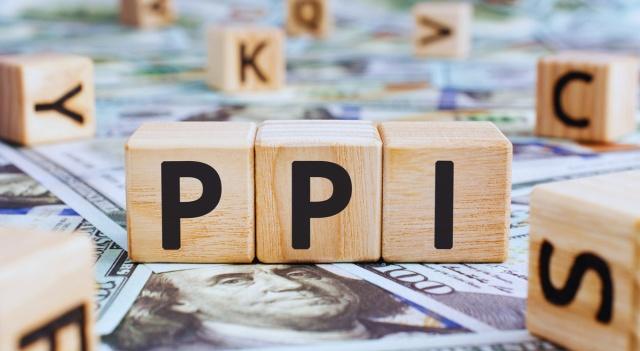
U.S. index futures rose in premarket trading on Thursday following a volatile session driven by August inflation data, with investors awaiting further economic data to guide market expectations.
At 5:12 AM, Dow Jones futures (DOWI:DJI) were up 82 points, or 0.20%. S&P 500 futures gained 0.22%, and Nasdaq-100 futures rose 0.24%. The 10-year Treasury yield stood at 3.68%.
On today’s U.S. economic calendar, initial jobless claims for September 7 will be released at 8:30 a.m. ET, with expectations of 225,000, down from the previous 227,000. The August Producer Price Index (PPI) is expected to rise 0.2%, and core PPI by 0.2%, after a prior increase of 0.3%. Annual PPI is expected to reach 2.2%, while core PPI is forecasted at 3.3%. At 2:00 p.m. ET, the August federal budget is expected, with a projected deficit of $317.3 billion.
In commodities, oil prices rose due to concerns over Hurricane Francine impacting U.S. production despite weak demand. The storm has caused Gulf of Mexico shutdowns and refinery disruptions. However, weak global demand and rising U.S. inventories are capping gains.
West Texas Intermediate crude for October rose 1.11% to $68.06 per barrel, while Brent for November increased 1.13% to $71.41 per barrel.
Gold (PM:XAUUSD) is trading at $2,516.65, up 0.18%, recovering from a slight drop. Core U.S. inflation increased in August, fueling speculation that the Fed will not cut rates significantly, keeping Treasury yields high and benefiting gold, which does not pay interest.
Asia-Pacific markets closed mixed. Japan’s Nikkei 225 rose 3.41% to 36,833.27, driven by the yen’s pause, benefiting exporters like Toyota and technology companies, including semiconductor and retail sectors.
Japan’s annual wholesale inflation slowed to 2.5% in August, influenced by yen recovery and lower import costs. The price index fell 0.2% in August, easing pressure on the Bank of Japan for further rate hikes.
China’s CSI 300 dropped 0.43% to 3,172.9, its lowest since January 2019, reflecting a lack of confidence in the country’s economic recovery and profits. The CSI 300 Index has lost 14% since May, facing its fourth year of losses. The real estate crisis and geopolitical tensions are worsening investor pessimism.
China is intensifying its crackdown on investment bankers, imposing travel restrictions and requiring passport handovers, according to Bloomberg. Since August, at least three bankers have been detained, raising concerns in the sector. The government seeks to combat corruption and restructure the financial industry, affecting business and morale in the sector.
South Korea’s Kospi rose 1.67%, and the Kosdaq gained 3%. China’s appliance manufacturer Midea Group plans to list shares in Hong Kong at a high price, raising at least $3.46 billion. The offering will be the largest in Hong Kong’s stock market since May 2021.
South Korea plans to lift the ban on short-selling by the end of March, allowing the strategy to be applied to all stocks. Financial Services Commission Chairman Kim Byoung-hwan said rule revisions are underway to ensure proper implementation. The suspension aims to enhance market liquidity and raise capital market standards.
Australia’s S&P/ASX 200 rose 1.1% to 8,075.7. Taiwan’s Weighted Index climbed 2.96% to 21,653.25. Hong Kong’s Hang Seng advanced 1% in the final hour of trading.
European markets are trading higher, driven by expectations for the European Central Bank’s interest rate decision. The Stoxx 600 rose, led by tech and mining stocks, while the food and beverage sector slipped slightly.
The European Central Bank is expected to cut the deposit rate to 3.5% on Thursday, but investors are closely watching for signs of future easing. Despite weak growth, high inflation, and wage pressures may lead the ECB to act cautiously without committing to further immediate cuts.
Among individual stocks, Roche shares (EU:RBO) fell 6.5% after revealing that positive results for its experimental weight-loss pill came from a trial with only six patients. In contrast, Novo Nordisk shares (TG:NOV) rose 0.3%, fueled by expectations that its new anti-obesity pill may surpass the efficacy of its Wegovy injection.
On Wednesday, U.S. stocks fell sharply at the start of the session but rebounded throughout the day, with the Nasdaq leading gains. The Dow Jones rose 0.31%, while the S&P 500 and Nasdaq gained 1.07% and 2.17%, respectively.
The Labor Department’s inflation report impacted the market, with data suggesting the Federal Reserve may cut rates by 25 basis points. The U.S. Consumer Price Index (CPI) rose 0.2% in August, as expected. The core CPI, excluding food and energy, increased by 0.3%, exceeding forecasts.
Before the market opens, companies like Big Lots (NYSE:BIG), Signet Jewelers (NYSE:SIG), Kroger (NYSE:KR), Caleres (NYSE:CAL), Turkcell (NYSE:TKC), Mytheresa (NYSE:MYTE), Lovesac (NASDAQ:LOVE), Innate Pharma (NASDAQ:IPHA), Ispire (NASDAQ:ISPR) and Ads-Tec Energy (NASDAQ:ADSE) will release quarterly reports.
After the close, Adobe (NASDAQ:ADBE), RH (NYSE:RH), and Farmer Brothers (NASDAQ:FARM) are expected to release earnings.

It looks like you are not logged in. Click the button below to log in and keep track of your recent history.